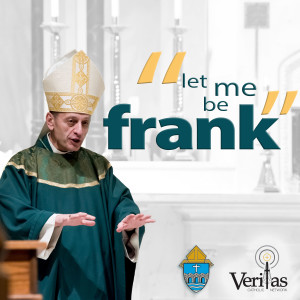In the 14th and 15th centuries there was a great European revival of interest in the values of classical Greek and Roman literature, art, philosophy and politics. It started in Italy and spread throughout Europe. Scholars were called humanists as they moulded their life on the teachings of the great Greek and Roman classical literature. There was also an increase in other areas of life: scholastic freedom grew exponentially, Roman morality, paganism, the Greek New Testament and the study thereof, and many new universities throughout Europe were started.
In amidst all this was the Church, which was continuing to change - and to the dismay of the Roman Catholic hierarchy, to the detriment of the established Church. Here are but 3 men – all of whom spoke brave words and lived brave lives!
Girolamo Savonarola (1452-1498) - Italian preacher of reform and the hero of many early Protestants. He became a Dominican monk after studying humanism and medicine. He affected the masses by his preaching and transformed the lives of many intellectuals through his thinking. He showed the impurities and corruption of the Roman Catholic system and spoke against the exploitation of the poor. Savonarola was well known for speaking prophecies about civic glory and called for Christian renewal. Eventually Savonarola was excommunicated and executed for denouncing the Pope and the corrupt papal court.
Here is one thing that Savonarola wrote:
The Pope may err, and that in two ways, either because he is erroneously informed, or from malice. As to the latter cause we leave that to the judgment of God, and believe rather that he has been misinformed. In our own case I can prove that he has been falsely persuaded. Therefore any one who obstinately upholds the excommunication and affirms that I ought not to preach these doctrines is fighting against the kingdom of Christ, and supporting the kingdom of Satan, and is himself a heretic, and deserves to be excluded from the Christian community.
John Colet (1466-1519) - a brilliant humanist at Oxford, and influenced Savonarola. He was enlightened and caused the epistles of Paul to live again in message. In 1512, as Dean of St. Paul's, he declared vicious and depraved lives of the church the worst heresy of all times which led to first reforming the bishops and it would spread to all. The church laws could not be enforced until the bishops became new men. Colet taught his students to keep the Bible and the Apostle's Creed.
Here is a quote from his convocation sermon of 1512:
“You are come together today, fathers and right wise men, to hold a council. In which what you will do and what matters you will handle, I do not yet know, but I wish that, at length, mindful of your name and profession, you would consider of the reformation of ecclesiastical affairs; for never was there more necessity and never did the state of the Church more need endeavors. For the Church – the spouse of Christ – which He wished to be without spot or wrinkle, is become foul and deformed.” Colet went on to conclude: “If, by chance, I should seem to have gone too far in this sermon—if I have said anything with too much warmth—forgive it me, and pardon a man speaking out of zeal, a man sorrowing for the ruin of the Church; and passing, by any foolishness of mine, consider the thing itself.”
Desiderius Erasmus Roterodamus (1467-1536) He was a student of John Colet and the greatest of all humanists. Professor of Divinity and Greek at Cambridge Uni. He aimed to reform Roman Catholic Church, from within and so didn't leave the church. As a result he was attacked by both the Roman Catholic Church and the Protestants. The Roman Catholic Church for heretical teaching, and by the Protestants for lacking courage. In 1516, he produced the Greek version of the New Testament because he wanted to make it understood by everyone. He was educated by Brethren of the Common Life, was ordained as a Priest in 1492 and laid the egg which Martin Luther later hatched.
In Holland and Northern Europe, during this period, there was a renewed interest in a personal devotional life with God. One such group was the 'Brethren of the Common Life', who emphasised personal devotion, poverty, chastity and obedience in a semi-monastic lifestyle.
Thomas a'Kempis (1380-1471). Thomas a’ Kempis was born in Germany in 1380 to a blacksmith and a schoolmistress. In 1392, he started at school and while there encountered the devotional group, Brethren of the Common Life. From there, Thomas joined a monastery and became a prolific copyist and writer – copying by hand the Bible four times. His most noted work today though, .is the 'Imitation of Christ', still one of the most widely read devotional books, even though it is distinctly Roman Catholic in doctrine it is both scriptural and Christ-centred.
The "Imitation of Christ" a devotional book divided into 4 parts.
- Part 1 - "Helpful Counsels of the Spiritual Life."
- Part 2 - "Directives for the Interior Life."
- Part 3 - "On Interior Consolation"
- Part 4 - "On the Blessed Sacrament"
Here are some quotes from that book – ahead of its time in many ways!
- "At the Day of Judgement we shall not be asked what we have read, but what we have done." — The Imitation of Christ, Book I, Chapter 3
- "For man proposes, but God disposes" — The Imitation of Christ, Book I, Chapter 19
- "If, however, you seek Jesus in all things, you will surely find Him. " — The Imitation of Christ, Book 2, Chapter 7
You can download a copy of this book for free from CCEL:
More Episodes
Church Leadership 05 - New Testament Leadership Part 1
 2024-09-15
2024-09-15
Church Leadership 04 - Old Testament Leadership Part 2
 2024-09-14
2024-09-14
Church Leadership 03 - Old Testament Leadership Part 1
 2024-09-13
2024-09-13
Church Leadership 02 - Understanding the jargon
 2024-09-12
2024-09-12
Church Leadership 01 - Who's in charge?
 2024-09-11
2024-09-11
When Jesus Returns As King - Revelation 21 to 22 - Bible Thought
 2024-09-10
2024-09-10
Leviticus 18 & 19 - Joy Get Its Hands Dirty - Partakers Bible Thought
 2024-09-09
2024-09-09
Leviticus 16 - A God of Joy and His people - Partakers Bible Thought
 2024-09-08
2024-09-08
Leviticus 9-10 - Obedient Service of God - Partakers Bible Thought
 2024-09-07
2024-09-07
64. Leviticus Introduction - Old Testament - Exploring the Bible
 2024-09-06
2024-09-06
God As Trinity - Bible Thought - WISE
 2024-09-05
2024-09-05
Almighty God - Bible Thought - WISE
 2024-09-04
2024-09-04
Sermon - Song of Solomon 8v5-7 - Aspects of Covenantal Love
 2024-09-03
2024-09-03
Sermon - Song of Solomon 5v9-6v9 - He is the Best of the Best
 2024-09-02
2024-09-02
Sermon - Song of Solomon 2v3-14 - Life Under the Apple Tree
 2024-09-01
2024-09-01
Exploring the Bible - 46. Old Testament - Song of Solomon
 2024-08-31
2024-08-31
Faith - Bible Thought - WISE
 2024-08-30
2024-08-30
Peace - Bible Thought - WISE
 2024-08-29
2024-08-29
Sanctification - Bible Thought - WISE
 2024-08-28
2024-08-28
Idolatry - Bible Thought - WISE
 2024-08-27
2024-08-27
Get your brand heard on this podcast
Join Podbean Ads Marketplace and connect with engaged listeners.
Advertise Today
Create your
podcast in
minutes
- Full-featured podcast site
- Unlimited storage and bandwidth
- Comprehensive podcast stats
- Distribute to Apple Podcasts, Spotify, and more
- Make money with your podcast
It is Free
You may also like

Life After Ministry


Cast The Word


Let Me Be Frank | Bishop Frank Caggiano’s Podcast | Diocese of Bridgeport, CT


The Bible Recap


The Bible in a Year (with Fr. Mike Schmitz)


- Privacy Policy
- Cookie Policy
- Terms of Use
- Consent Preferences
- Copyright © 2015-2024 Podbean.com




 iOS
iOS Android
Android